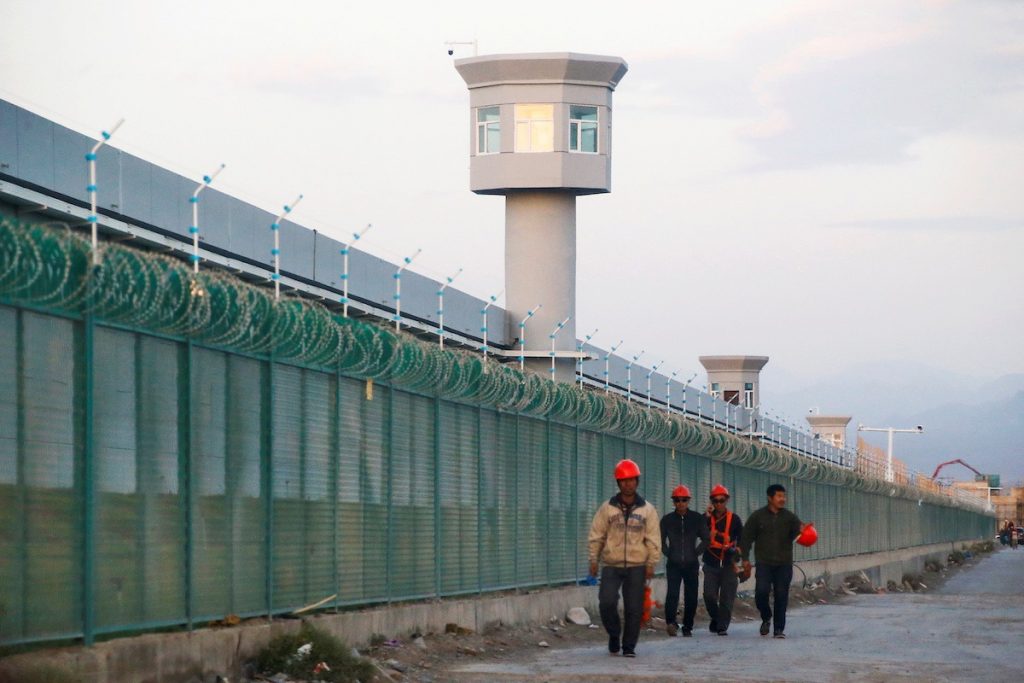
The Trump administration expanded economic pressure on China’s western region of Xinjiang on Dec. 2, banning cotton imports from a powerful Chinese quasi-military organization that it says uses the forced labor of detained Uighur Muslims.
The US Customs and Border Protection (CBP) agency said the “Withhold Release Order” would ban cotton and cotton products from the Xinjiang Production and Construction Corps (XPCC), one of China’s largest producers.
The move is among several the Trump administration has been working on in its final weeks to harden the US position against China, making it more difficult for President-elect Joe Biden to ease US-China tensions.
The targeting of XPCC, which produced 30 percent of China’s cotton in 2015, follows the US Treasury Department’s move in July to ban all dollar transactions with the entity, founded in 1954 to settle China’s far west.
While the Treasury sanctions target XPCC’s financial structure, the CBP action will force apparel firms and other companies importing cotton products into the United States to eliminate XPCC-produced cotton fiber from many layers of their supply chains, said Brenda Smith, CBP’s executive assistant commissioner for trade.
CBP has the authority to detain shipments based on suspicion of forced-labor involvement under long-standing US laws to combat human trafficking, child labor and other human rights abuses.
Wider ban studied
In September, CBP had considered a much broader import ban on all cotton and tomato products from Xinjiang, but after dissent from within the Trump administration, it announced narrower bans on products from specific entities, including two smaller cotton and apparel producers.
US Department of Homeland Security Secretary Kenneth Cuccinelli, who oversees the border agency, told a news conference a Xinjiang region-wide cotton import ban was still being studied.
Cuccinelli called “Made in China” a “warning label.”
“The cheap cotton goods you may be buying for family and friends during this season of giving — if coming from China — may have been made by slave labor in some of the most egregious human rights violations existing today in the modern world,” he said.
US apparel makers had criticized a broader ban as impossible to enforce, but on Wednesday, clothing and retail groups in a joint statement welcomed CBP’s XPCC-specific ban and said they were on the “front lines of efforts to ensure forced labor does not taint our supply chains or enter the United States.”
The groups, which included the American Apparel and Footwear Association and the National Retail Federation, said ending forced labor and repression in China cannot be achieved with US unilateral pressure but required a “whole of world approach.”
Biden has pledged to work with US allies to bring pressure on China to curb human rights and trade abuses. Trump in recent weeks has increased action against major Chinese state companies, banning access to U.S. technology and investments.
The United Nations cites credible reports as saying 1 million Muslims held in camps have been put to work. China denies mistreatment of Uyghurs and says the camps are vocational training centers needed to fight extremism.
Source: Licas Philippines
0 Comments